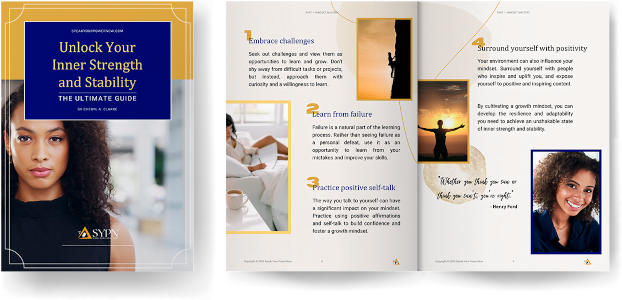Transform Your Communication Skills and Thrive in Challenging Conversations
Are you ready to transform your communication skills and navigate those challenging conversations with confidence? In a world filled with diverse perspectives and complex relationships, effective communication is the key to success. In this episode of the Speak Your Power Now podcast, we’re delving into the art of “Navigating Difficult Conversations with Power.”
Get ready as I share valuable insights and strategies that can benefit everyone. Whether you’re dealing with workplace conflicts, navigating personal relationships, or engaging in community discussions, mastering difficult conversations is a skill that can empower you in all aspects of life.
Difficult Conversations: The Crucial Starting Point
It’s essential to understand what constitutes a difficult conversation. These are dialogues that often involve disagreement, tension, or strong emotions. They can occur in various settings, such as the workplace, within personal relationships, or even in community discussions.
Navigating difficult conversations is essential because they are inevitable. We’ve all experienced those sweaty palms and racing heartbeats when facing tough discussions. However, I want you to approach these moments without fear because I’m here to equip you with strategies to navigate them successfully.
Key Takeaways: Your Roadmap to Success
Here are some strategies to help you master difficult conversations:
1. The Power of Preparation
Preparation is your key tool for navigating difficult conversations. Clarify your objectives, gather relevant information, and approach the conversation with confidence. Being well-prepared allows you to anticipate potential challenges and navigate the conversation with a strong sense of direction.
2. The Courage to Confront
Confronting difficult conversations requires courage. It’s essential to understand the importance of addressing issues head-on, even if you don’t feel confident initially. Embrace emotional intelligence, as it’s crucial for building interpersonal relationships and ensuring that your conversations lead to growth and deeper connections.
3. Creating a Safe Space
Establishing a safe environment for dialogue is crucial. A safe space fosters respect, open communication, and mutual understanding. When people feel secure and respected, they are more likely to share their thoughts and listen to yours. Ensure that your conversations are free of judgment, ridicule, and negativity.
4. Active Listening
Mastering active listening is a critical skill for effective communication. It demonstrates respect, encourages honesty, and minimizes misunderstandings. Active listening means focusing on the speaker, understanding their message, and genuinely being present without formulating your response in advance.
5. The Power of Perspective
Harnessing the power of perspective involves approaching conversations with curiosity. Ask questions, encourage others to share their viewpoints, and take the time to reflect on what they’ve said before responding. Empathize with their emotions and gain a better understanding of their perspective.
6. Managing Your Emotions
Emotions can cloud your judgment during difficult conversations. Recognize when you’re no longer present in the conversation and take control of your emotions. Use techniques like the P.I.E.S. method – Pause, Inventory, Explore, and Solve – to manage your emotions effectively. Fostering emotional intelligence ensures that your conversations remain respectful, productive, and solution-oriented.
7. Non-Verbal Communication
Your non-verbal cues speak volumes. Be aware of your body language, tone of voice, and facial expressions. Ensure that your non-verbal communication aligns with your intended message. Managing your non-verbal cues helps your message be received as intended.
Your Path to Mastery
Effective communication is a skill that develops over time. Be patient with yourself and others as you navigate difficult conversations. Remember that by mastering these techniques, you’re not only enhancing your own life but also contributing to the betterment of your relationships and the world around you.
In conclusion, communication is a powerful tool that can bridge gaps, dissolve misunderstandings, and foster deeper connections. Your communication style can enrich your life and relationships. Effective communication, especially in difficult conversations, equips you to thrive in various spaces, whether at work, in relationships, or while transcending boundaries.
Remember, the principles of communication remain constant, and by mastering the art of navigating difficult conversations with power, you can pave the way for breakthroughs and solutions that benefit everyone involved.












